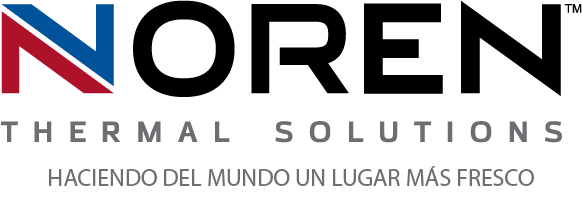 The advancement of technology and the use of more advanced electrical cooling solutions have helped companies in every industry significantly enhance their operations on many different levels. That enhancement has most frequently focused on improving productivity in key areas and the efficiency of their overall operations. However, another important goal has been to help make companies’ operations greener and more eco-friendly, as well. With the use of more efficient heat exchangers, which operate on more natural and environmentally friendly heat transfer principles, companies have been able to achieve that goal much more efficiently in the area of electrical thermal management.
The advancement of technology and the use of more advanced electrical cooling solutions have helped companies in every industry significantly enhance their operations on many different levels. That enhancement has most frequently focused on improving productivity in key areas and the efficiency of their overall operations. However, another important goal has been to help make companies’ operations greener and more eco-friendly, as well. With the use of more efficient heat exchangers, which operate on more natural and environmentally friendly heat transfer principles, companies have been able to achieve that goal much more efficiently in the area of electrical thermal management.
The changing needs of electrical cooling solutions
The progression of thermal management technologies hasn’t always been focused mainly on creating more eco-friendly cooling processes. Due to the high energy and maintenance demands of more traditional cooling solutions, such as air conditioners and air compressors, companies in most industries sought first to improve the efficiency and lower the costs of their thermal management processes. Heat exchangers helped companies achieve this by transforming the way companies approached the prevention of electrical overheating. Rather than utilizing chilled or compressed air to fight electrical waste heat, heat exchangers operate by facilitating the rapid and continuous transfer of waste heat within an electrical enclosure.
Making electrical cooling processes greener
To make preventing electrical overheating a more efficient and manageable process, modern heat exchangers utilize principles of transferring waste heat that are inherently easier to manage. For example, processes such as natural/forced convection, conduction, and phase-change cooling can be maintained within smaller, more efficient heat pipes or custom cold plates. In addition to lowering the costs of electrical cooling and utilizing easier to maintain cooling units, heat exchangers also help significantly reduce the environmental footprint that’s often related to more traditional electrical cooling setups. As demands for more environmentally friendly business processes have continued to grow, the ability to streamline electrical cooling has been a significant advantage.
The eco-friendly capabilities of heat exchangers
As companies in every industry continue benefiting from more efficient and cost-effective thermal management processes, the enhanced productivity and eco-friendliness of modern heat exchangers have proven invaluable in many applications. This has been felt even more profoundly as companies continue to invest in other eco-friendly systems and processes. For example, in many industries, companies have utilized heat exchangers to make the implementation of wastewater treatment processes greener and more energy efficient. The transfer and repurposing of waste heat has made heat exchangers a vital part of supplementing the energy required for such processes.
For more information about why thermal management is more eco-friendly these days, call Noren Thermal Solutions in Taylor, TX, at 866-936-6736.







